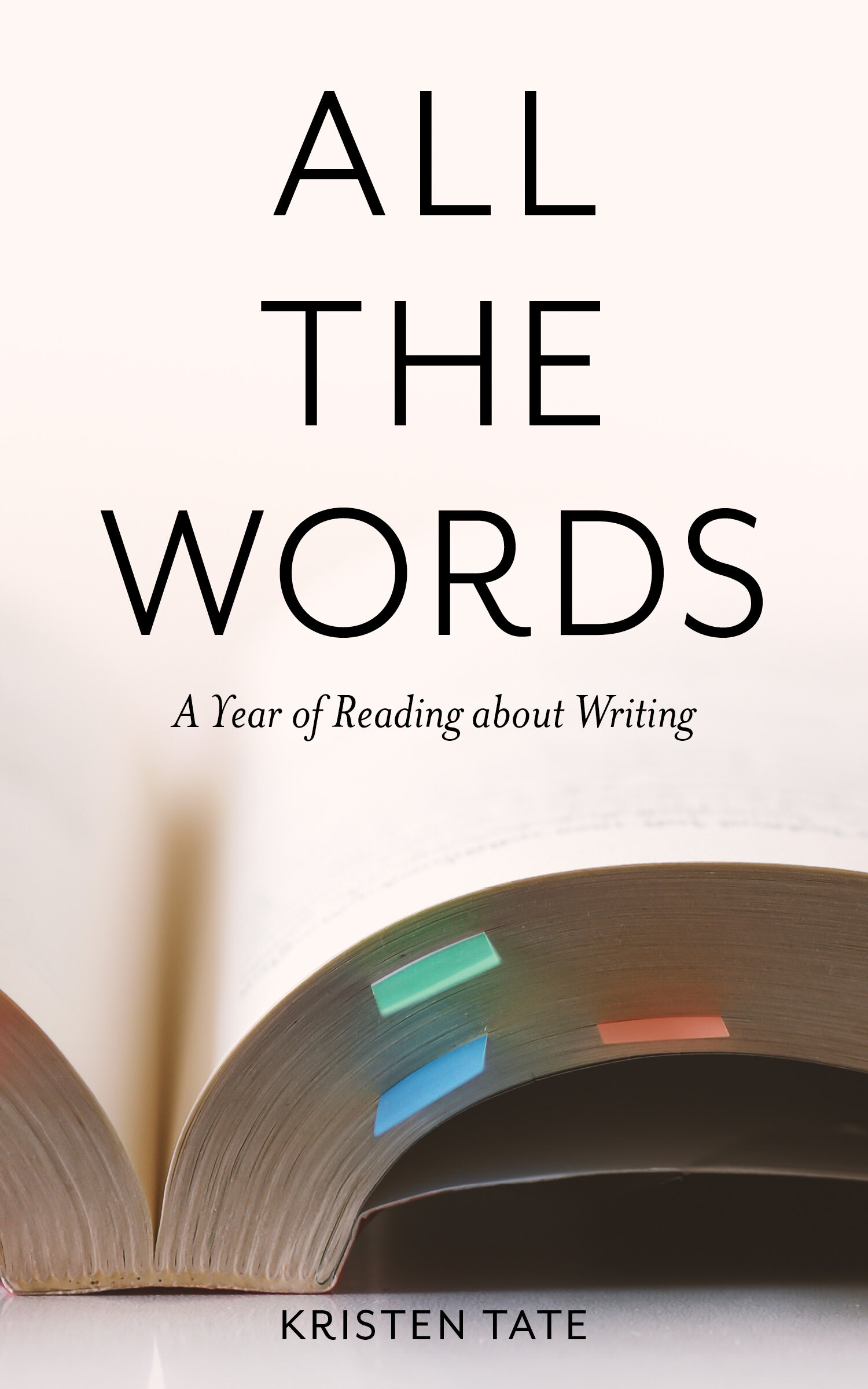Dreyer’s English, by Benjamin Dreyer
This is part of a series of weekly reviews of writing craft books written in 2019, later revised and collected in Kristen’s book All the Words: A Year of Reading About Writing. Read the first chapter or buy the book in our Shop.
It is week eleven of 2019. It has been a wrenching week in the world, and that can sometimes stop your words. Let yourself be silent or send your words elsewhere for a time, but then guide them gently back to your book. Books are solace, and we will need yours in the world someday.
Some of my happiest hours this week have been spent with the words of Benjamin Dreyer, the Random House copy chief, who has distilled his decades of experience in Dreyer’s English: An Utterly Correct Guide to Clarity and Style. As you can sense from the title, Dreyer wears his wisdom lightly. He is quick to admit to his own crotchets and idiosyncrasies, and his advice is delivered with disarming humor. One of my favorites: “You are free to dislike such bureaucratese phrases as ‘grow the economy’ because they’re, to use the technical term, icky.” (Speaking of humor, the footnotes are not to be missed.)
Dreyer’s English is not a grammar textbook (you will learn what a phrasal verb is, if you care to, but only by happenstance in the course of a discussion about title capitalization), nor is it an exhaustive reference book for writers or editors. Instead, it’s a loosely organized tour through Dreyer’s recommendations on common topics and his opinions about the “curiosities and arcana” that interest him. Wondering where Dreyer lands on the hot topics of editing? Here you go: “Only godless savages eschew the series comma,” and “the singular ‘they’ is not the wave of the future; it’s the wave of the present.”
Writers of all stripes will benefit from his list of meaningless words and phrases to avoid (e.g., ‘very,’ ‘rather,’ ‘really,’ ‘quite,’ ‘in fact’), as well as his chapter on “trimmables”: phrases like ‘hollow tube’ that are needlessly doubled. (My favorite of his examples in this chapter is ‘assless chaps’: “The garment, that is. Not fellows lacking in dorsal embonpoint. I’m not sure how often this will come up in your writing—or in your life—but chaps are, by definition, assless. Look at a cowboy. From behind.”) His chapter on “confusables” is similarly valuable. I check ‘lead/led,’ ‘desert/dessert,’ ‘peak/peek,’ and ‘stationary/stationery’ every time I see them pop up, and you should too. Even careful writers slip up on these more often than you would think.
Seeing Dreyer demolish what he calls “the Great Nonrules of the English Language” is prime entertainment, and I look forward to citing his authority when there is an infinitive which needs to be split, a sentence which needs to be fragmented, or a list which needs to be introduced with ‘like.’
Dreyer’s chapter on fiction will be illuminating for novelists, and it’s a must-read for fiction editors. You will search the Chicago Manual of Style, the style guide used by most book publishers, in vain for guidance on what to do “when characters self-interrupt and immediately resume speaking with a pronounced change in thought,” but Dreyer has you covered: “I suggest the em dash–space–capital letter combo pack, thus: ‘Our lesson for today is— No, we can’t have class outside today, it’s raining.’” His list of common consistency problems and his thoughts about dialogue are well worth a look, and his technique for seamlessly integrating flashbacks is sheer brilliance: Cue the flashback by putting the first two or three verbs in the past perfect tense (“she had”), then shorten one or two more using the contracted form (“she’d”), and then “drop the past-perfecting altogether when no one’s apt to be paying attention and slip into the simple past.”
One of the lessons that I’d like writers to learn from Dreyer’s English is that their editor is an ally, not an enemy. As Dreyer puts it, “The role of a copy editor is, above all else, to assist and enhance and advise rather than to correct—indeed, not to try to transform a book into the copy editor’s notion of what a good book should be but, simply and with some measure of humility, to help fulfill an author’s vision and make each book into the ideal version of itself.” Hear, hear! (Not, as Dreyer reminds us, ‘here, here.’)
I’ll leave you this week with one final bit of wisdom from Dreyer’s English: “Staring at words is always a bad idea. Stare at the word ‘the’ for more than ten seconds and reality begins to recede.” If you experience this phenomenon, you know it’s time to shut the tab or close the document or put down the pen and step away from the words for the day.
Here’s to burnishing the words, y’all,
Kristen
Check out our Resources page for more in-depth articles on writing, revising, polishing, and publishing your novel. Sign up for our weekly newsletter for fresh content, and you’ll also get our free PDF with recommended reading for writers!



